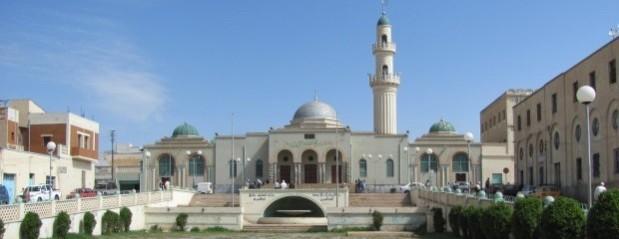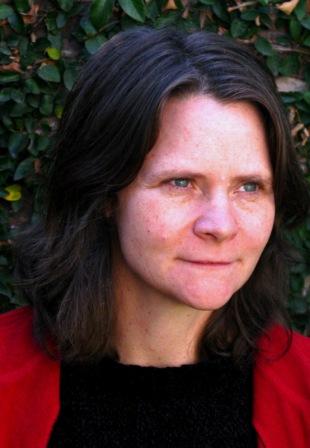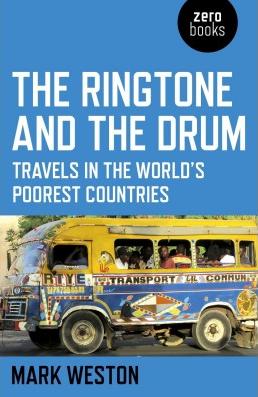“˜Talking Eritrea’ remains tough whilst researchers are perceived as the enemy – Anonymous

Last week saw the closing plenary of the “˜Talking Eritrea’ seminar series organised by Justice Africa and SOAS, entitled “˜Limits on Research and Reporting in Eritrea: The Implications for Peace and Rights’. This marked the conclusion of a four part series, with the previous talks addressing the critical issues of: Human Trafficking and Torture in the Sinai; the impacts of Eritrea’s mandatory national service programme on Eritrean society; and the phenomenon of survival migration out of Eritrea.
Unfortunately, but rather predictably, it quickly became evident that however nuanced the research presented on Eritrea was during the session, certain audiences will continue to interpret it in purely binary formulations. Somewhat like the unhelpfully reductionist dichotomy between “˜believers’ and “˜non-believers’ in which Rwanda scholars are often pigeon-holed, a series of other well-versed, mutually exclusive categorisations for research on Eritrea pervaded the heated Q&A that followed the presentations.
The reactions of certain (Eritrean) members of the audience showed total intolerance to the middle ground presented by many of the speakers. One sensed that, to them, it appeared one is either: pro-Eritrea or pro-Ethiopia vis-í -vis the border question and sanctions; pro-PFDJ or conspiring to topple it; and most disappointingly in this context, either pro-government or a researcher, journalist or academic. It is important to stress here, however, that these views are clearly not illustrative of the Eritrean community at large, who hold a heterogeneous set of opinions. There were multiple attempts to mediate and condemn their peers during the moments of heated interjection.
Nonetheless, the performance of a section of the audience was revealing in itself. This group seems to automatically conflate any suggestion of change within government policy with a conviction that the speaker wishes to bring down the whole regime. In doing so, the organiser’s guiding question for the talk: “˜What is the state of knowledge and debate about contemporary Eritrean politics and human rights…?’ was pessimistically answered.
Whilst knowledge on Eritrea may be increasing thanks to the innovative work of scholars such as those seen in this seminar series, clearly in terms of debate between the different stakeholders, if this event is taken as representative, the situation in open forums is pretty dire. The majority of the Q&A-come-debate that followed the discussants’ presentations consisted of defending the speakers from the verbal abuse they patiently received and responded to, or defending the PFDJ. It was thus a shame that certain members of the audience curtailed the space for further questioning or reflection on what were four very different, but extremely interesting, responses to the event’s central focus.
The reason this event descended in to the hostility and argument it did was perhaps that its aim and purpose was not made coherent throughout the presentations. Fascinating personal reflections on oppositional politics contrasted with moments when it felt like the audience was being directly engaged solely as defenders of the Eritrean regime. It was thus at times understandable, if not justifiable, that such a didactic tone might possibly further antagonise part of an audience which from the start was hustling for a fight.
Attempts to defend academia to the audience were unfortunately done using more divisive examples which, though fascinating to many, were no doubt inflammatory to others. Interactions between these groups are valuable and should happen, and all the lectures raised issues in need of further attention and discussion, but the performative space of the lecture theatre with its large, mixed audience may not be the right forum for it. Though not such a replicable model, the event’s real strength lay in the tea and coffee period afterwards when, away from the propensity to self-defence on all sides which comes from debates being pushed towards no middle ground, far more reasonable discussions and reflections were to be had.
The resistance of the Young People’s Front for Democracy and Justice, despite having been excessively confrontational, disruptive and aggressive as admitted by several members in discussion afterwards, must not, however, be discounted within that context. Having attended this seminar series, albeit it under their own volition (as Michela Wrong rightfully pointed out), many felt alienated and frustrated by discussions which focused purely on human rights violations within Eritrea, the abhorrent treatment of Eritrean refugees, and the authoritarian nature of the regime. In their eyes, such a systematic delegitimisation of their country’s governance could only be countered by a strident response.
The obvious irony, however, is that whilst the country remains closed to most journalists, researchers and academics, the capacity to report on successful and interesting developments within Eritrea (such as the decentralisation of the disbanded University of Asmara, the huge success of Eritrean cycling, or the development patterns of real estate in Asmara) is severely limited. When primary research on Eritrea is methodologically limited to interviews with the diaspora, whether refugees or not, or analysis of internet sources, this causes the kind of reporting bias reflected in the nature of the talks seen during this Seminar Series.
Furthermore, and as pointed out by Michela Wrong, whilst reporters and journalists are granted interviews with governments of the surrounding regimes, they are rarely given access to the PFDJ itself. Additionally, the dismissal of the panellists as unremitting “˜non-believers’ fails to recognise that they are all individuals who have, at times, defended the regime when they feel it is being unnecessarily vilified.
Eritrea faces challenges experienced the world over, such as national and regional integration, health care coverage, education provision, environmental degradation, etc. – all issues which researchers should be able to challenge states on, or collaborate with them over without being dismissed as “˜the enemy’. It appears impossible to construct these agenda however when the country remains so closed to outside researchers, and attempts at constructive dialogue as seen last week are so rapidly reduced to “˜you’re either with us, or against’.
The author wishes to remain anonymous.







Firstly, this ‘talking Eritrea’ serious, was an absolute sham/circus.An event organised by ‘justice Africa’, an org.(a irrelevant one, may i add) that is in bed with the ethiopian regime in addis abeba.So its not surprising to see the complete bias/lies that were being echoed in these ‘seminars’.
Now michela Wrong, stated that “journalist ‘will’ report on what they ‘can’ report on,refugees & trafficking,not Badme or sanctionsâ€.Now why CAN’T, they report on the occupation of Badme or the Unjust Illegal sanctions? That statement by Wrong, is quite revealing, she’s practically saying, that they are ordered, not to report or shed light on the occupation of Eritrean territories by ethiopia, which is exactly what we are seeing from ‘journalist’ reporting on Eritrea.
Finally,the ‘talking Eritrea’ seminars, had many objectives to start with,the main objective as usual was to distract people from the occupation of Eritreans homes & land by ethiopia, with the help of its western backers, which is the root cause of problems in the Horn of Africa. The fact that there wasn’t even a single seminar,on the occupation of Eritrean territories, just shows their clear intent. But thanks to the Patriotic Eritreans, who had enough of non-Eritreans speaking on their behalf & who are familiar with these deceptive distraction techniques, the ‘talking Eritrea’ seminars, didn’t go according to the organisers plan.
I was at the seminar and I felt it was completely biased against Eritrea. I say this as a non-Eritrean. I didn’t see much middle ground because the extremist were the intellectuals, not the Eritreans defending their country from people that have a vested interest in selling books or documentaries from their ‘research’.
Any discussion about Eritrea should focus on Ethiopia’s illegal occupation of Eritrean territories. Because that is what’s leading to the militarization of Eritrea. Neglecting this major issue or down playing underscores they are not being genuine about their ‘research’.
Lastly, I’m surprised why the focus was made on Eritreans who leave the country? Last time I checked, every developing country has this issue. In fact, when we compare Eritrea with Ethiopia, the number of Eritreans who are leaving their country is far less than those leaving Ethiopia, yet no one mentions this fact. So why not treat migration as a developing country/economy issue instead of pretending it has to do with a lack of democracy in Eritrea?
Just my 2 cents
The purpose of these bogus seminars about the Eritrea is to distract the world from the reality that Ethiopia is the #1 exporter of humans beings in the world. In 2013, the number of Ethiopian migrants to Saudi Arabia alone was 40x the total number of Eritrean migrants WORLDWIDE(2013). Of course you will never ever see a single article about the Ethiopian exodus let alone a seminar.
“1.6 Million Ethiopian Refugees[800,000/year] Have Illegally Entered Saudi Arabia since 2012, according to the Chinese state-owned international news agency CCTV.”
http://youtu.be/CDQRH80P7ys
start@1:55
“More than 1,500[18,000/year] Eritreans, including unaccompanied minors, flee the country monthly.”
http://www.hrw.org/world-report/2013/country-chapters/eritrea
Eritreans problem began with the bogus referendum conducted in 1993 under duress by the two friendly liberation fronts of Eritrea and Tigray that fought along side and won the military regime of Mengestu of Ethiopia. I say under duress because the choice was between freedom and slavery and the 99.9 % vote for Independence was secured on the watchful of the Ethiopian regime that appears to want Eritreans out of Ethiopia.
Had they conducted honest referendum they would have confidently claim true independence and the people of Eritrea would vote with their foot as much as they were forced to vote at the voting boot. But, in reality the independent people of Eritrea remained in Ethiopia proper and more came from Eritrea to settle in Ethiopia to enjoy the fruits of their war trophy with their comrades of Tigray Liberation Front.
Though there is different version of why the two liberators go sideways that eventually turned in to war between the two countries (comrades), the Eritreans’ greed to gabble up Ethiopian resources after independence and the ruling Tigrians greed that abandon independence to take the Ethiopian government over and gabble up Ethiopians resources was the more plausible explanation of the conflict between the two.
The invasion of contested area by the Eritrean force and TPLF led Ethiopian government respond, including deporting 1000s of of Eritreans brutally made them mortal enemies to deepen their mistrust up today.
From the outset, the Independence struggle of Eritrea and Tigray supported by the Arabs for religious reason and by Western countries to counter the Soviet expansion was not for self determination alone as claimed but regional and Western powers geopolitical interest that instigate it.
The war of the two comrades in arms coming on the seminar hall shouldn’t surprise anyone because both parties, from their inception to running two states seldom tell the truth to their people or the world.
The no-war-no-peace situation is a deliberate plan by TPLF led Ethiopian government to weaken its old comrades in EPLF and to keep Ethiopians guessing and worked flawlessly so far.
Eritreans fail to accept responsibility the comrade they help bring to Ethiopia turned around to be the worst nightmare they envisioned and continue to blame Ethiopians for their own mishaps.
There is no innocent victim between EPLF and TPLF, but the people they tormented for over two decade. Until the hard core on both sides are dealt with there would be no peace but possible war.
They deserve each other
Here are some of my reflections on the series having co-ordinated the event on behalf of Justice Africa:
http://justiceafrica.com/ver2/?p=1011#more-1011
re Justice Africa being in bed with Ethiopia, this is utter non-sense, JA is and always has been an independent and independently funded NGO.
These events organised by JusticeAfrica with SOAS facilitation of the Venue was not a Research and Debate based events. It was a pure campaign perpetuated by Hooligans with a Moral ASBO the likes of Selam Kidane etc . It was very fortunate that shoes weren’t thrown at some of the speakers that were present there.
NB: Question to JusticeAfrica….Why was there promotions of a campaign to do with the ”Stop National Service in Eritrea”.
How do you expect conscious Eritreans to Listen to your sinister campaign that wasn’t event officially part of the ” Talk Eritrea Seminar Series” and accuse the Eritrean youth of ”frustration”. JusticeAfrica and possibly CAS at SOAS need to answer these important question and Apologies to the young Eritreans who come there with an expectation of Research and debate platform but only to find the otherwise Sinister Campaign .
JusticeAfrica, congrats for your self promo you even had to upgrade your website. Remember you can still clear yourself by writing a fair review and distance yourself from individuals tinted by hooliganism.